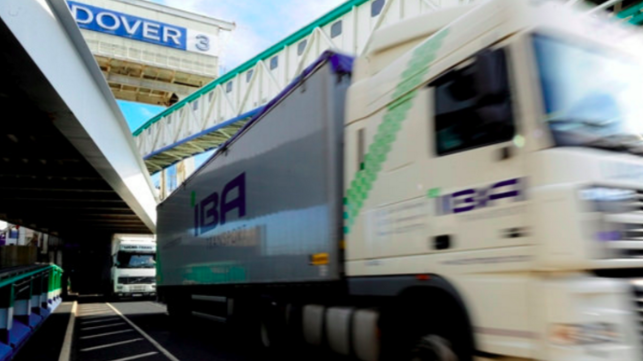In Potential Win for UK Ports, Johnson Negotiates New Brexit Deal

UK Prime Minister Boris Johnson has negotiated a deal on trade and customs with the European Union, and all EU27 leaders have agreed to it. The agreement includes an important concession to the EU, one that the previous administration of Prime Minister Theresa May had firmly ruled out: Northern Ireland will still be subject to European customs rules after Brexit.
Under pressure from the Irish government, EU negotiators have insisted that there should be no "hard" border on the island of Ireland. Pro-Ireland and pro-UK partisans fought over the border from the late 1960s until 1998, when a peace accord - the Good Friday Agreement - opened the way to free travel across the island. Ireland has refused to agree to any Brexit trade deal that would reintroduce a customs barrier at the border with Northern Ireland, fearing that it could lead to renewed unrest.
The new agreement preserves freedom of movement across the border. In order to prevent imports from flowing across that border without paying EU customs duties or conforming to EU standards, goods arriving in Northern Ireland will be subject to EU customs, unless Northern Ireland is their final destination. UK customs officers will be tasked with applying the rule and collecting the duties. Northern Ireland's lawmakers would have the chance to revisit this arrangement in four years' time.
"We now have a new protocol on Ireland and Northern Ireland, which protects peace and stability . . . and fully protects our single market," said Jean-Claude Juncker, the President of the European Commission, in a press statement. "It's a legal text which provides legal certainty to the problems created by Brexit."
The deal now goes to Parliament, which has until October 31 to ratify it. Several of Johnson's Labour Party opponents panned it: John McDowell MP, the shadow chancellor, called it a "sell out." "It’s not just [Northern Ireland's Democratic Unionist Party], he’s sold out virtually every sector of our economy and all those who may have voted to leave believing a deal could be secured that protected their jobs," McDowell said.
Labour leader Jeremy Corbyn echoed this sentiment. "From what we know, Johnson's negotiated a worse deal than Theresa May. This sell-out deal risks our rights, protections and [National Health Service]. It won’t bring the country together and should be rejected," he said. Corbyn called for putting the deal up for a public vote.
"We’ve got a great new deal that takes back control - now Parliament should get Brexit done on Saturday so we can move on to other priorities like the cost of living, the NHS, violent crime and our environment," said Prime Minister Boris Johnson in a statement.
The path to a winning vote in Parliament is narrow. The DUP has already voiced its opposition, Labour opposes the deal, and Johnson's own Tory party is reduced in size because he ejected 21 rebellious members earlier this year - votes he will now have to win back.
If the agreement does win approval in Parliament, it would have major implications for Britain's seaports. A sudden Brexit with no provisions for free trade would likely mean extended delays due to British shippers' expected failure to comply with EU customs rules. The UK has gone so far as to charter in extra ro/ro freight capacity to handle the most important shipments - like medical supplies - in the event of severe disruption. On the other side of the Channel, ports like Calais and Rotterdam have invested heavily in new infrastructure and staffing to handle traffic problems, and these expenditures would no longer be needed.
